7 Different Host Plants & Their Pollinators
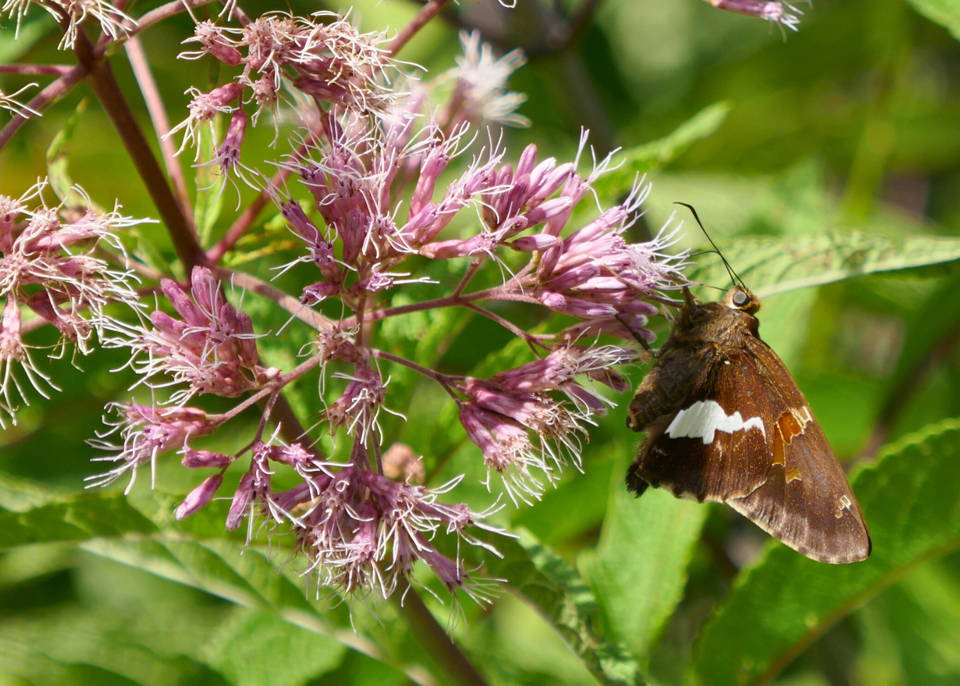
Host plants are essential for supporting the life cycle of pollinators, like butterflies and moths. They are the plants where pollinators lay their eggs and offer young larvae, like caterpillars, the food they need to grow and survive. Some perennials, shrubs, and vines support a wide range of pollinators during their lifecycle, while others are relied on as the sole host plant for that pollinator species. Without these host plants, certain pollinator species could go extinct! That's why we're sharing a few of our favorite perennial and shrub host plants, along with the special pollinators that rely on them. Who knows, you might see these specialists fluttering around your garden.
7 Perennial & Shrub Host Plants & Pollinator Host
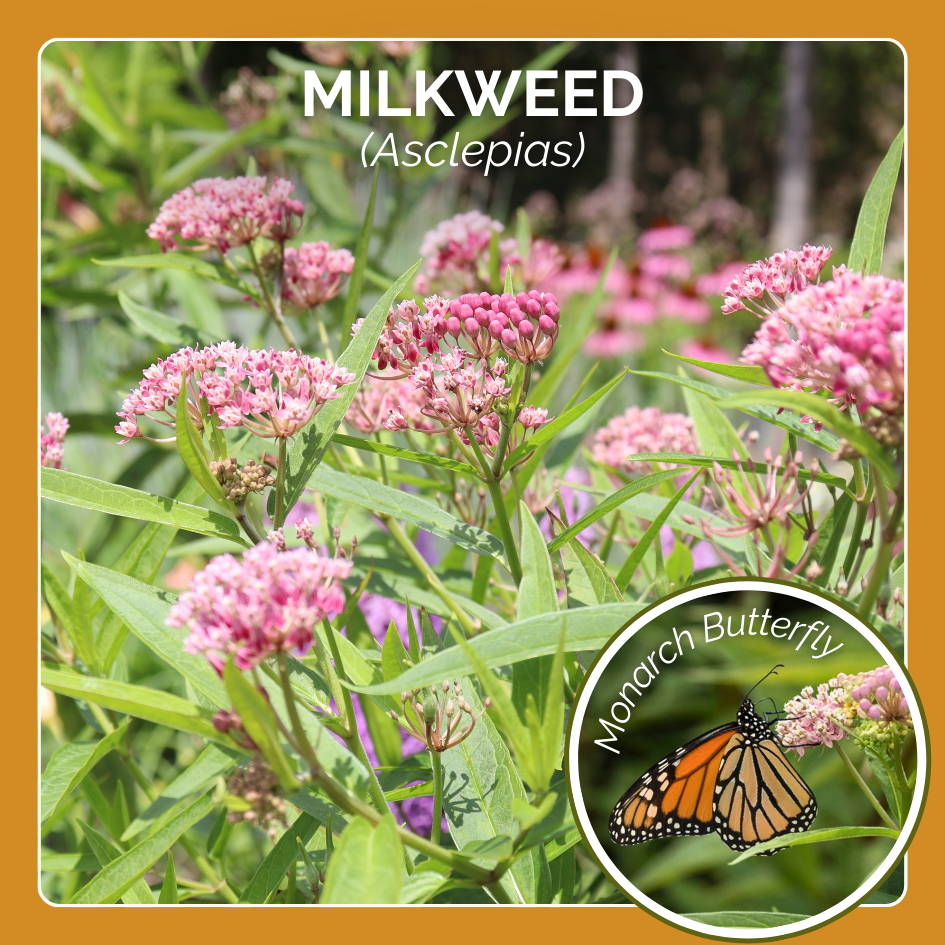
Milkweed (Asclepias)
Host Plant To: Monarch butterfly, Milkweed tussock moth
Milkweed (Asclepias) is a native perennial that grows naturally in woodland areas and prairies of North America and features flower clusters heavily laden with nectar. Monarch caterpillars lay their eggs on milkweed, and the young larvae exclusively feed on milkweed leaves. The milky sap from which milkweed gains its name is toxic to most animals but not to Monarchs who store these toxins within their body, making them unpalatable to potential predators.
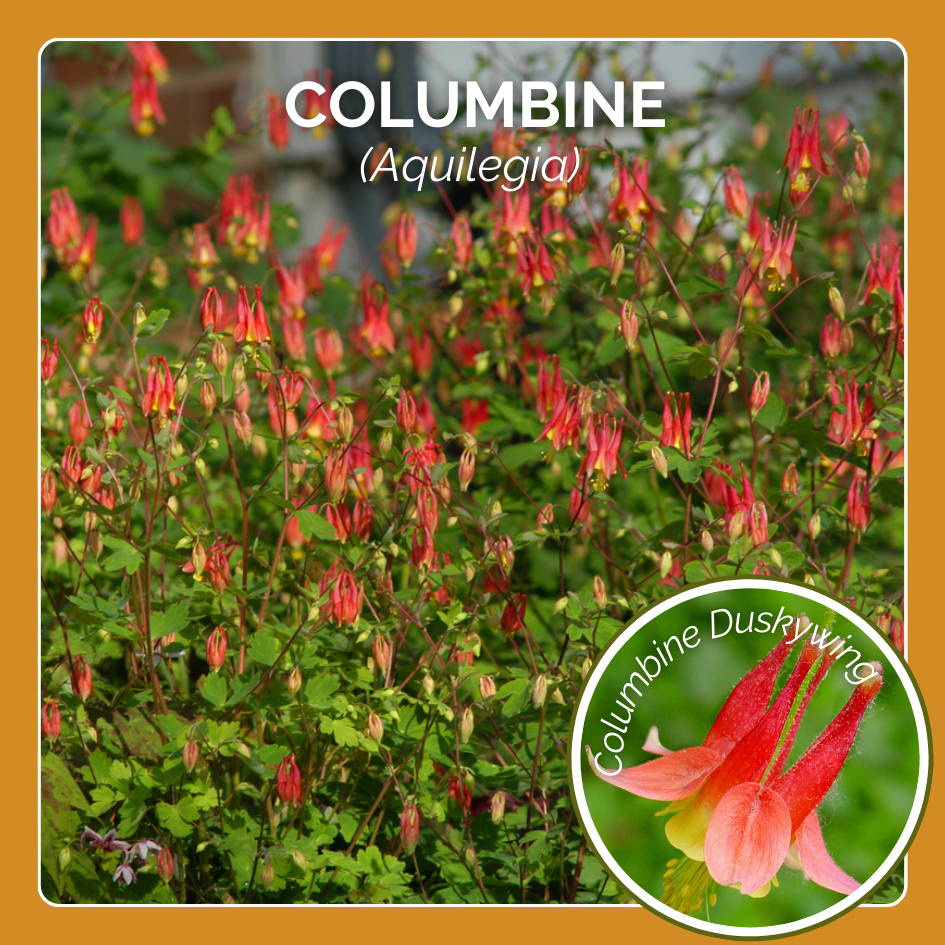
Columbine (Aquilegia)
Host Plant To: Columbine Duskywing butterfly
Columbine (Aquilegia) is native to the prairies of the Eastern United States and the sole larval host to the Columbine Duskywing butterfly, by which it earned its name. The Duskywing caterpillars feed on the leaves, while the adults help pollinate and facilitate their reproduction. It's quite the symbiotic relationship! It's also low maintenance and adaptable, adding easy-care charm to your garden or meadowscape.
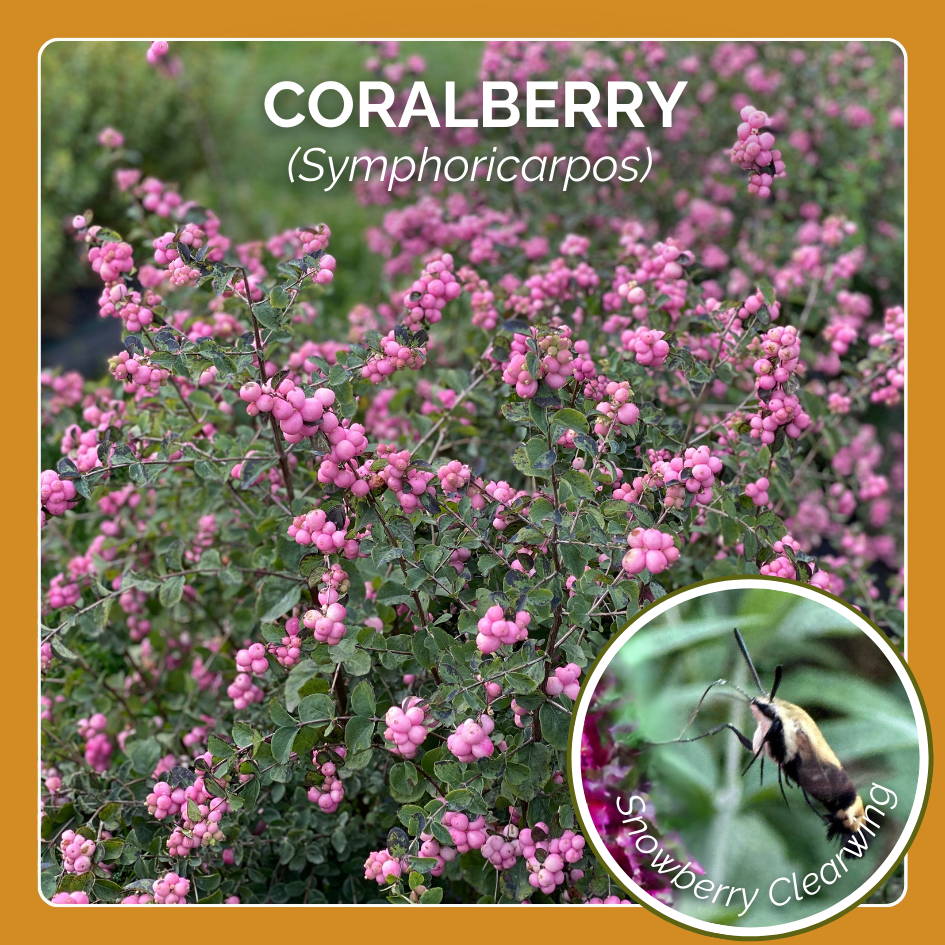
Coralberry (Symphoricarpos)
Host Plant To: Snowberry Clearwing
Coralberry (Symphoricarpos) is a hardy, deer-resistant, and shade-tolerant flowering shrub that graces your garden with neat round leaves and pink berries. But it's not just about the looks that make coralberry stand out! It's also an essential larval host plant for the Snowberry clearwing moth, which relies on leaves as a food source. Aside from being a host plant, the gorgeous berries attract various birds to the garden during the fall.
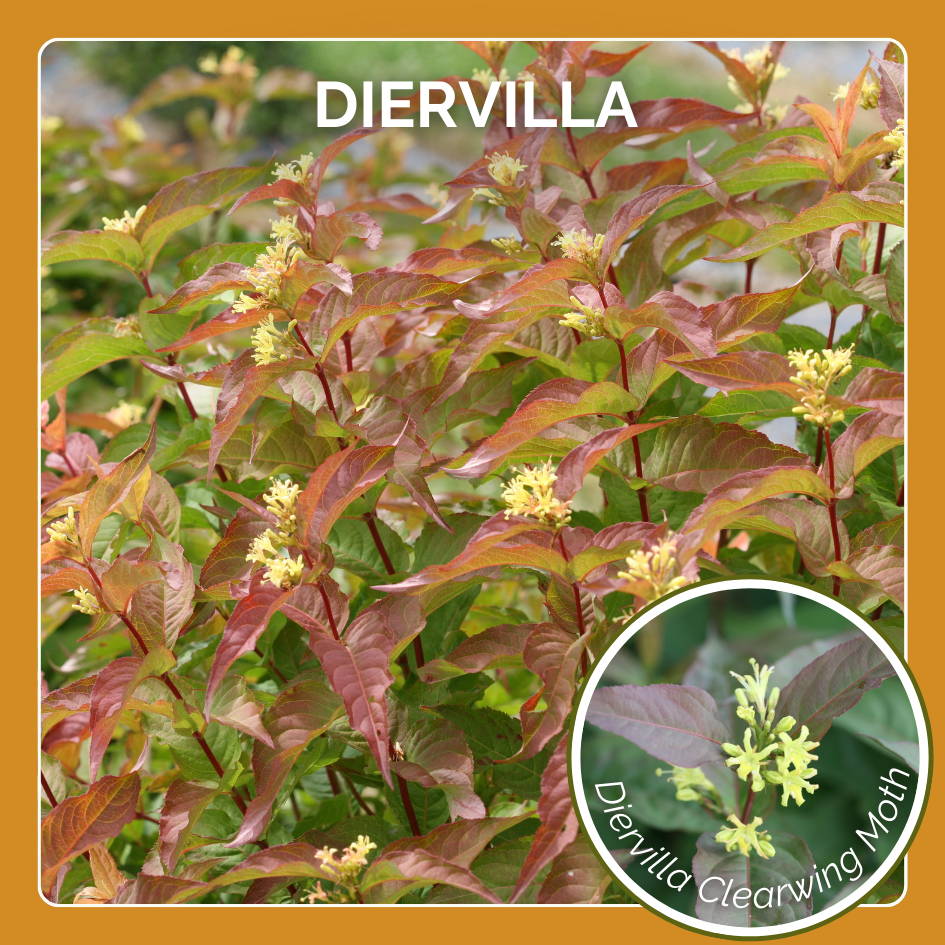
Diervilla (Bush Honeysuckle)
Host Plant To: Diervilla Clearwing moth, Laurel Sphinx moth, Snowberry Clearwing moth
Diervilla is a native shrub and a favorite for landscapers, and it's easy to see why. It features nectar-rich flower clusters in spring and summer and fiery foliage come fall. Along with attracting pollinators, diervilla is also the sole host plant to the Diervilla Clearwing moth, and its foliage and flowers provide food for the Laurel Sphinx moth and the Snowberry Clearwing moth.
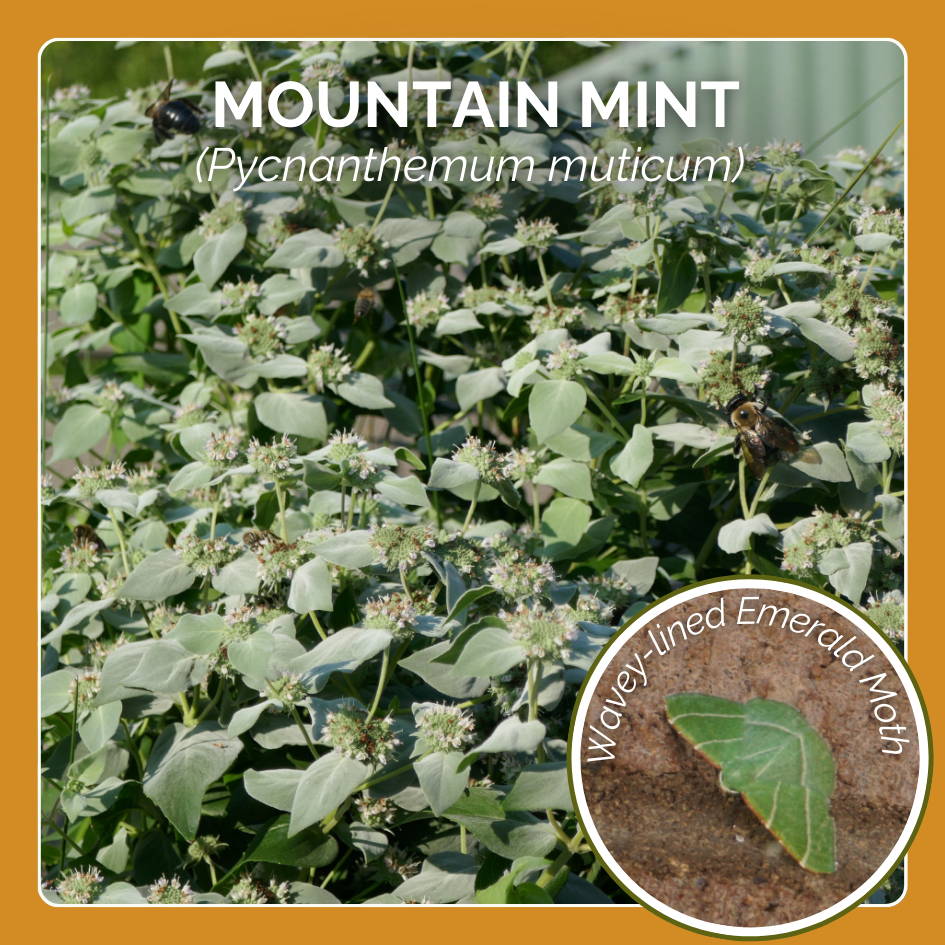
Mountain Mint
(Pynanthemum muticum)
Host Plant To: Wavey-lined Emerald Moth, Gray Hairstreak butterfly
Mountain Mint (Pycnanthemum muticum) is simply one of the very best native perennials for attracting a host of pollinators - particularly valuable native bees - to your garden. It's also a host plant for the Wavey-lined Emerald moth and Gray Hairstreak butterfly, which feed on the leaves during the early stages of their lifecycle. Try planting along a sunny hedge or rain garden to add some showy silver foliage and fragrance to your landscape.

Joe Pye Weed (Eutrochium)
Host Plant To: Clymene moth, Eupatorium Borer moth, Ruby Tiger moth, Three-lined Flower moth
Star-like whorls of foliage contrast the red stems of this towering 6'+ tall perennial, adding texture and color through the entire growing season. Pollinators of all kinds flock to Joe Pye weed's nectar-rich flowers, while specialists like the Clymene moth, Eupatorium Borer moth, and the Ruby Tiger spend most of their lifecycle on the plant, lay their eggs and feed on the leaves.
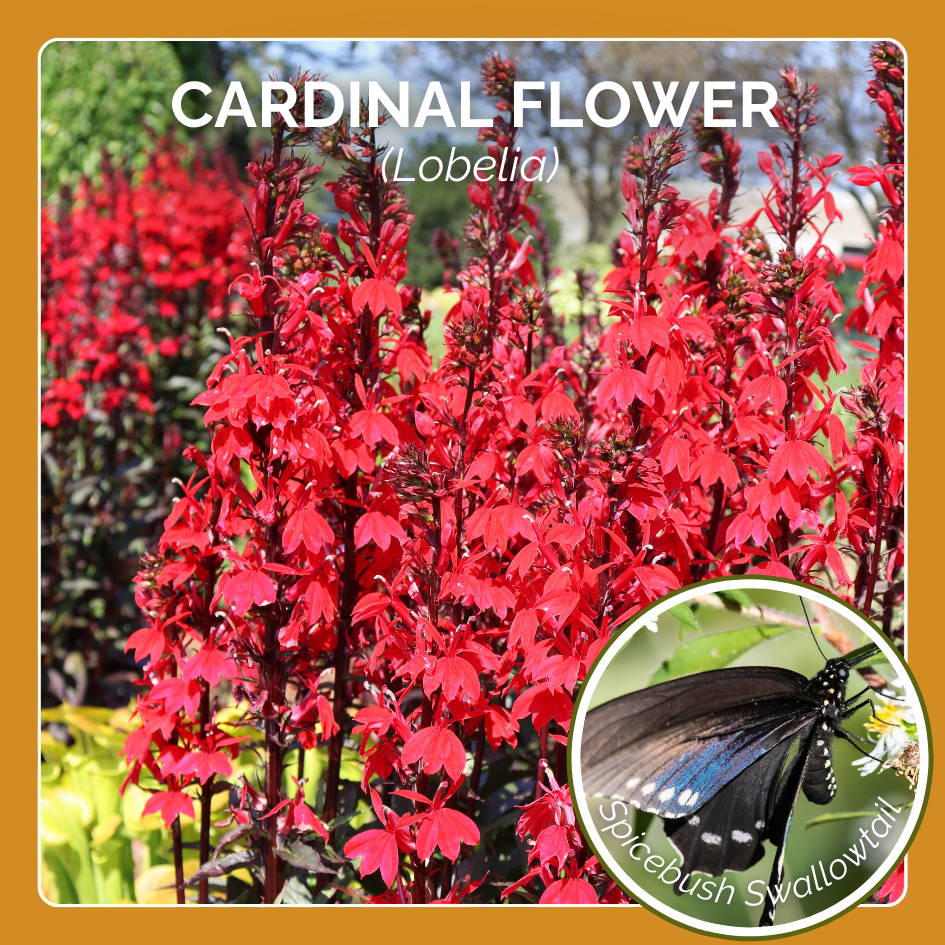
Cardinal Flower (Lobelia)
Host Plant To: Checkered White butterfly, Spicebush Swallowtail, Red Banded Leafroller moth
Cardinal flower (Lobelia) is a nectar-rich perennial known to attract and support a plethora of pollinators, including the famous Spicebush swallowtail and Checkered White butterfly, which use the leaves of cardinal flower to lay their eggs. With its adaptability, brilliant red flowers, and deer resistance, it's easy to see why cardinal flower is loved by gardeners, too!

